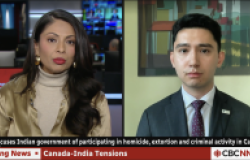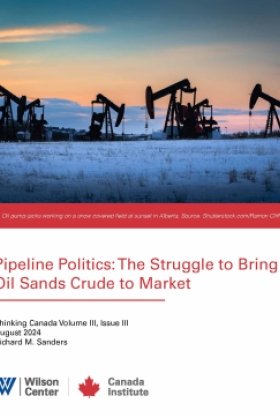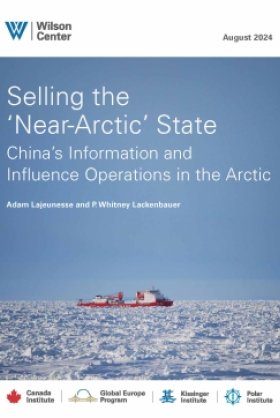Book Discussion: Reckless Endangerment
NYT reporter Gretchen Morgenson and financial analyst Joshua Rosner, authors of the best-seller "Reckless Endangerment," dig into the home mortgage crisis.
Overview
The 2008 subprime mortgage crisis dealt a significant blow to an already fragile economy, exacerbating the credit crisis and deepening the global recession. In their new book, Reckless Endangerment: How Outsized Ambition, Greed, and Corruption Led to Economic Armageddon, Gretchen Morgenson, Pulitzer Prize-winning financial analyst for the New York Times, and Joshua Rosner, managing director at Graham Fisher & Co and one of the first to identify the housing market’s peak, examine the sins of omission and commission that led to the collapse.
The authors describe how greed and irresponsibility led to a downward spiral that ensnared low-income borrowers, mortgage bankers, global investors, and eventually the average American. On July 27th, the Woodrow Wilson Center’s United States Studies Program, along with the Program on America and the Global Economy and the Comparative Urban Studies Project, hosted Morgenson and Rosner for a lively discussion of their book.
Reckless Endangerment, Rosner began, tells the story “of the relationship between Washington and Wall Street, between social policy and private markets.” They brought year of experience with the complexities of the housing market adding perspective and detailed knowledge to previous accounts of the crisis.
Rosner described changes in the housing market that began in the late 1980s. He then moved to the subprime mortgage crisis of the late 2000s and ended with what he called today’s lack of honest dialogue in Washington.
Resoner described the late 1980spush toward increased homeownership that was accomplished by lowering standards for borrowers and shifting towards automated underwriting. According to Rosner, the government sponsored entities (GSEs) Fannie Mae and Freddie Mac took the lead in the overall effort. In Rosner’s view, Fannie Mae worked closely with the Congress to limit regulatory oversight showing “that you could capture your regulator by capturing Congress, and that you can wrap yourself in social policy goals to achieve your ends.” This irresponsible cooption of social policy, in his view, set the stage for the crisis to come.
Wall Street in the 1990s found investors pooling and securitizing mortgage loans in a frenzied and unregulated environment. Fannie Mae and Freddie Mac supported this trend when, Rosner said, they “become the single largest buyers of private-label mortgage backed securities.” When the bubble burst and the market collapsed, foreclosures soared and homeownership rates plummeted.
Washington, Rosner believes, has failed to put forth a good solution to the housing crisis. For him, it should take the form of “a functional private mortgage market [that is] separate from the social policy of homeownership.”
Morgenson took up the story by describing the evolution of the crisis. She described the troubling partnership between regulators and private industry, as well as the tremendous power of the GSEs, which used their connections to “steamroll… anyone who had the temerity to criticize [the] push for homeownership.” This push, driven by an expansion of the market to the underprivileged, has, Morgenson contended, led to a paradox: “the very people we were trying to help are [now] hurt the most by the outcome of this episode.”
Today, Morgenson reported, the lessons of the crisis still have not been learned. The push for increased homeownership continues, with mortgage bankers opposing the types of safe, sensible regulations that would bring the industry back to its pre-crisis form.
In response to questions from the audience, Rosner and Morgenson commented on the forces that drove the market toward crisis, the steps being taken to punish those responsible, and the way forward for American homeownership.
Examining what went wrong, the authors criticized attempts to tie powerful GSEs to both taxpayers and private markets. As a result, industry leaders were encouraged to prevaricate and stand aside as crisis approached. Deception came as Fannie and Freddie continuously tried to hide the significant worth of their government ties. Meanwhile, Wall Street bankers enjoying enormous profits failed to acknowledge that the merry-go-round they were riding would eventually stop.
Asked about accountability, the authors expressed frustration at an “entrenched bureaucracy” that uses silence and distraction to maintain the status quo. A “false narrative” allowed figures like Tim Geithner, Hank Paulson and Peter Orszag, all of whom had a hand in creating the crisis, to become “heroes [by] picking up the pieces of the crisis that they created,” Rosner said.
The media continue to rely on the pundits, economists, and experts who had served as “cheerleaders” for the very mistakes that led to crisis. Rosner also credited Washington think tanks with making “a lot of excuses…to protect their standing even though they got it very wrong.”
Prompted for suggestions for how to address the issues at hand, both authors advocated a return to home ownership as long term personal investment. Rosner used the term utility for the former role of housing, providing a steady flow of benefits and forcing a gradual increase in equity over time. Rosner had a number of creative ideas – for instance a tax favored saving plan to build a down payment – to foster the return to a traditional housing market.
Summary by Avram Billig, Emily Malkin, and Sonya Michel
8/1/11
Speakers
Hosted By

Urban Sustainability Laboratory
Since 1991, the Urban Sustainability Laboratory has advanced solutions to urban challenges—such as poverty, exclusion, insecurity, and environmental degradation—by promoting evidence-based research to support sustainable, equitable and peaceful cities. Read more
Thank you for your interest in this event. Please send any feedback or questions to our Events staff.











